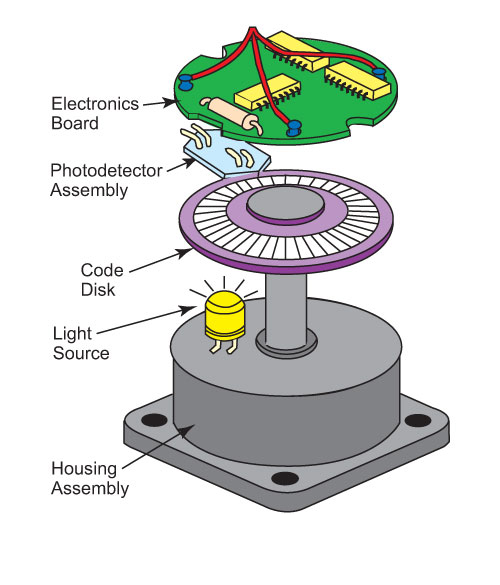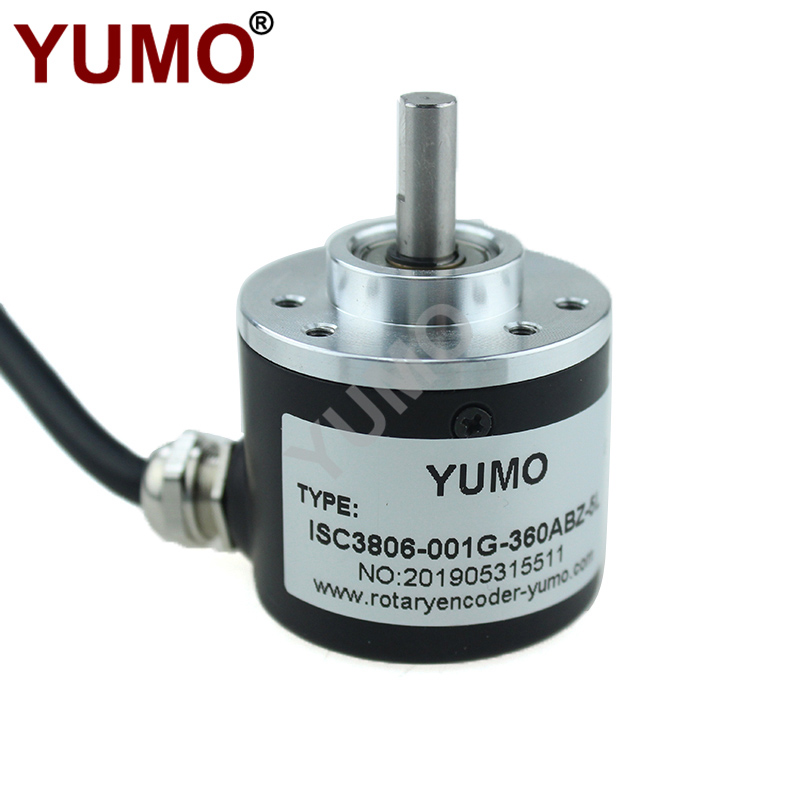How does an encoder work?
Date:2019-07-06 Clicks:3031
How does an encoder work?

Encoders use different types of technologies to create a signal, including: mechanical, magnetic, resistive and optical – optical being the most common. In optical sensing, the encoder provides feedback based on the interruption of light.

The graphic outlines the basic construction of an incremental rotary encoder using optical technology. A beam of light emitted from an LED passes through the Code Disk, which is patterned with opaque lines (much like the spokes on a bike wheel). As the encoder shaft rotates, the light beam from the LED is interrupted by the opaque lines on the Code Disk before being picked up by the Photodetector Assembly. This produces a pulse signal: light = on; no light = off. The signal is sent to the counter or controller, which will then send the signal to produce the desired function.


